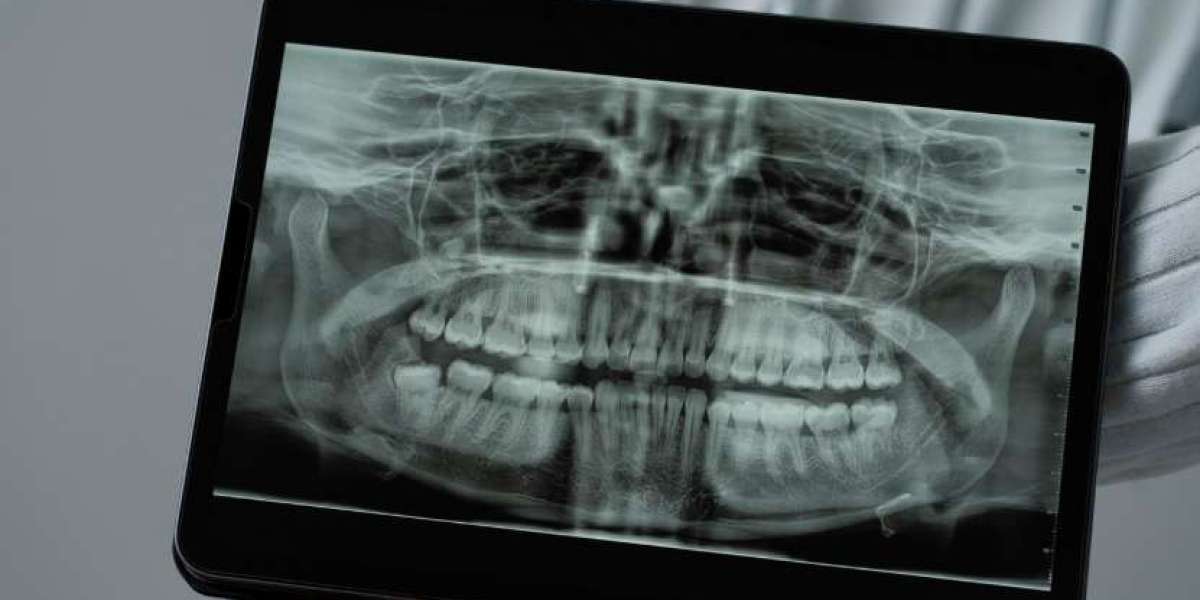Wisdom teeth, or third molars, are the last set of teeth to emerge in the mouth—typically between the ages of 17 and 25. While some people never have issues with them, many others experience problems due to impacted wisdom teeth. These occur when the teeth don’t have enough room to erupt properly, which can lead to pain, swelling, infection, and misalignment of other teeth.
Modern dental radiology services have made it possible to detect these problems early, plan precise treatments, and avoid unnecessary complications. Let’s explore how radiology plays a crucial role in identifying and managing impacted wisdom teeth.
What Are Impacted Wisdom Teeth?
Impacted wisdom teeth are teeth that are trapped beneath the gums or jawbone, or only partially erupted. There are several types:
Mesial impaction: The tooth is angled forward toward the front of the mouth.
Vertical impaction: The tooth is upright but trapped beneath the gum.
Distal impaction: The tooth is angled backward.
Horizontal impaction: The tooth is lying completely sideways.
Impacted teeth can lead to several issues such as:
Gum infections
Tooth decay in nearby teeth
Damage to surrounding bone
Cysts or tumors in rare cases
How Dental Radiology Services Help
1. Early Diagnosis Using X-Rays
Standard dental X-rays are the first line of defense. A panoramic X-ray gives a broad view of your entire jaw, showing the development and position of your wisdom teeth. Dentists can detect whether the teeth are impacted and how they are positioned in relation to the rest of your mouth.
This is especially important in teens and young adults, as early diagnosis can prevent major complications later on.
2. Advanced Imaging with CBCT
Cone Beam Computed Tomography (CBCT) is an advanced imaging tool that creates 3D images of your teeth, soft tissues, nerve pathways, and bone. This is particularly useful in complex cases where traditional X-rays don’t offer enough detail.
CBCT helps dentists:
Identify the exact position of the tooth
Measure proximity to nerves (especially the inferior alveolar nerve)
Assess bone density and jaw structure
Plan safe surgical extractions
This level of precision significantly reduces the risk of nerve damage or other surgical complications.
Why Accurate Imaging Matters
When it comes to impacted wisdom teeth, a small error in diagnosis can lead to major problems. Dental radiology ensures:
Better treatment planning: Surgeons can determine the best approach for extraction.
Reduced surgical risks: Detailed imaging helps avoid nerves, blood vessels, and sinuses.
Shorter recovery time: Proper planning minimizes trauma to surrounding areas.
Informed decisions: Patients can better understand the necessity of removal or monitoring.
When Should You Consider Radiology for Wisdom Teeth?
You should visit a dental professional offering dental radiology services if you:
Are between 17 and 25 and haven’t had your wisdom teeth evaluated
Experience pain or swelling in the back of your mouth
Have jaw stiffness or difficulty opening your mouth
Are undergoing orthodontic treatment and need your third molars assessed
Preventive imaging often leads to early detection, which may avoid surgery or reduce the need for complicated procedures later on.
Conclusion
Impacted wisdom teeth are a common dental issue, but with modern dental radiology services, diagnosis and treatment have become much more effective and safer. Whether you’re feeling discomfort or simply want to stay ahead of potential dental problems, scheduling an imaging appointment is a smart step.
Timely detection with accurate imaging is the key to avoiding pain, infections, and future dental complications. Don't wait until symptoms worsen—book a dental radiology consultation today and take proactive control of your oral health.








